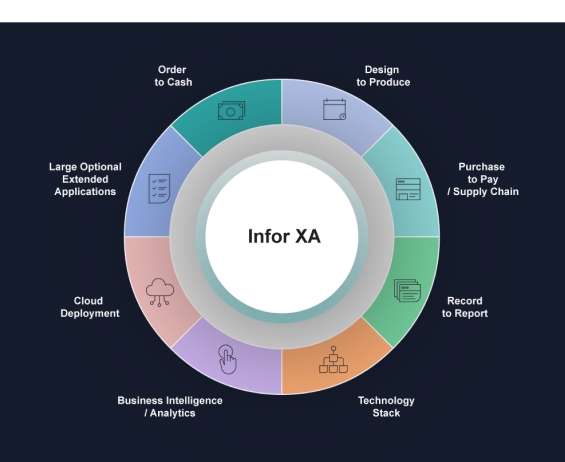Description
Introduction
Manufacturing and production planning involve complex project management challenges, including resource optimization, production scheduling, cost control, and supply chain integration. SAP Project System (SAP PS) provides a structured approach to managing manufacturing projects, ensuring efficient coordination between engineering, production, procurement, and finance.
This course is designed to help professionals leverage SAP PS for effective project execution in manufacturing environments. Participants will learn how to structure production projects, track costs, integrate with SAP PP (Production Planning) and MM (Materials Management), and optimize resource utilization. By mastering SAP PS, organizations can improve operational efficiency, reduce production delays, and enhance overall productivity.
Prerequisites
-
Basic understanding of manufacturing processes and production planning.
-
Familiarity with project management concepts.
-
Exposure to SAP PS, SAP PP, or SAP MM is beneficial but not required.
-
Knowledge of cost management and supply chain workflows is an advantage.
Table of Contents
1. Overview of SAP PS in Manufacturing and Production
1.1 Role of SAP PS in Manufacturing Project Management
1.2 Key Challenges in Production Planning and Execution
1.3 Business Benefits of SAP PS in Manufacturing
1.4 SAP PS Integration with Other SAP Modules
2. Project Structuring and Work Breakdown Structure (WBS)
2.1 Defining Manufacturing Project Workflows
2.2 Creating a Work Breakdown Structure (WBS) for Production Projects
2.3 Project Scheduling and Milestone Planning
2.4 Resource Allocation and Capacity Planning
3. Cost Planning and Budget Control
3.1 Cost Estimation and Budget Allocation in SAP PS
3.2 Cost Tracking and Variance Analysis
3.3 Cost Optimization and Budget Adjustments
3.4 Integration with SAP FI/CO for Financial Management
4. Procurement and Materials Management
4.1 Managing Material Requirements with SAP PS
4.2 Integration with SAP MM for Procurement and Inventory Control
4.3 Handling Bill of Materials (BOM) in Manufacturing Projects
4.4 Supplier and Vendor Coordination for Manufacturing
5. Production Planning and Execution
5.1 Aligning SAP PS with SAP PP for Production Scheduling
5.2 Capacity Planning and Resource Allocation
5.3 Tracking Production Progress and Managing Bottlenecks
5.4 Quality Control and Compliance in Manufacturing Projects
6. Workforce and Resource Management
6.1 Assigning Workforce and Equipment in SAP PS
6.2 Labor Utilization and Workforce Productivity Tracking
6.3 Subcontracting and Vendor Management in Production
6.4 Integration with SAP HR for Workforce Planning
7. Risk Management and Change Control
7.1 Identifying Risks in Manufacturing Projects
7.2 Change Management and Adaptability in SAP PS
7.3 Managing Delays and Mitigating Risks
7.4 Compliance with Industry Standards and Regulations
8. Advanced Reporting and Analytics
8.1 SAP PS Reports for Manufacturing Projects
8.2 Real-Time Production Analytics and Dashboards
8.3 Customizing Reports for Cost, Schedule, and Quality Tracking
8.4 Using SAP Fiori Apps for Project Monitoring
9. SAP PS Integration with Other Modules
9.1 SAP PS and SAP PP: Synchronizing Production Plans
9.2 SAP PS and SAP MM: Managing Inventory and Procurement
9.3 SAP PS and SAP SD: Order Management and Billing
9.4 Connecting SAP PS with External Manufacturing Tools
10. Case Studies and Industry Best Practices
10.1 Real-World Implementations of SAP PS in Manufacturing
10.2 Success Stories from Leading Manufacturing Companies
10.3 Lessons Learned and Optimization Strategies
10.4 Future Trends in SAP PS for Manufacturing
Conclusion
SAP PS plays a crucial role in ensuring seamless project management in manufacturing and production planning. By integrating with key SAP modules, organizations can optimize production workflows, enhance cost control, and improve overall efficiency.
This course equips professionals with the necessary skills to implement SAP PS for manufacturing, ensuring better coordination, reduced downtime, and increased profitability. By leveraging SAP’s capabilities, companies can drive innovation and maintain a competitive edge in the market.







Reviews
There are no reviews yet.